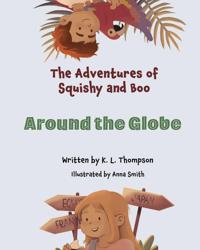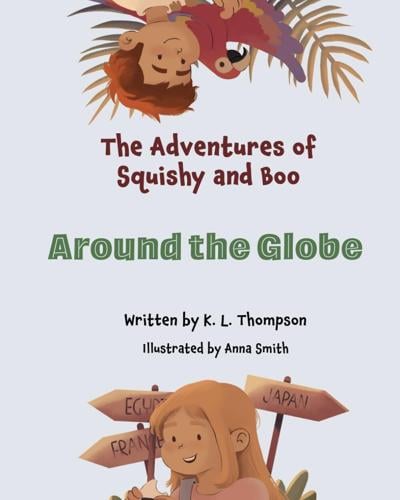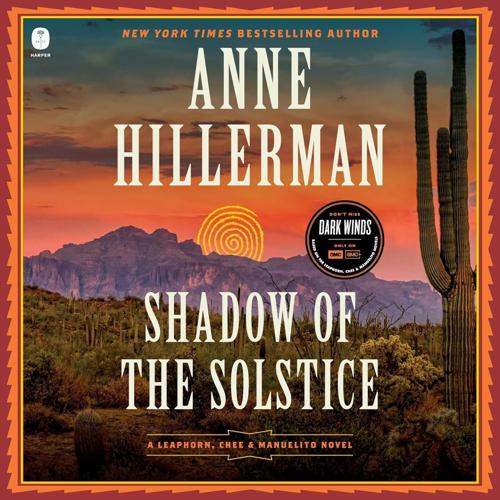— Around the Globe: The Adventures of Squishy and Boo
By K.L. Thompson. Illustrations by Anna Smith. K.L. Thompson Publishing; 48 pgs. $25.95 hdcvr, $12.95 pbk, $2.99 Kindle
As the brother/sister team of Squishy and Boo prepare to dig into a croissant breakfast, they find themselves magically transported to Paris. Quelle surprise! It’s a little unsettling, but luckily Dad is along for the ride, and Paris has cool sights to see. But, before you can say Sacré Cœur, they’re off again to someplace new.
They’ll make the rounds of six continents on their wild ride (Antarctica will have to wait for another time), and each is more adventurous than the one before. With Dad reassuringly nearby, there’s no need to worry, no matter where their magical travels take them.
The third in the “Squishy and Boo” series by Tucson author K. L. Thompson, this picture book works on a number of levels and is perfect for Storytime or a bedtime read-aloud. From pyramids to kangaroos to Times Square, there are plenty of international sights and sounds to wonder and talk about: it’s a great introduction to the concept of world geography. And there’s never hint of insecurity; Dad is a constant presence, assuring Squishy and Boo that they are “all together, in mind and in heart.” In all, it’s the stuff that big adventures and sweet dreams are made of.

— Helene Woodhams
— Misfits Abroad: Adventures in Love, Language and Foreign Lands
By Martine Robinson Beachboard. Published by the author; 285 pgs. $23.50 hdcvr, $12.50 pbk, $5.99 Kindle.
Growing up in an Army base “gate town” meant a childhood of bidding envious farewells to friends when their military dads were transferred. As a civilian employee, the author’s father had a job that rooted them firmly in their Arizona town, so she was more than ready when her husband’s assignment took them abroad to live in Germany.
It was the experience of a lifetime, and Martine Beachboard recalls it warmly in anecdotes and reminiscences about their travels, unforgettable characters met along the way, and the often-steep learning curve that accompanies immersing one’s self in a foreign culture and unfamiliar language. Imagine discovering, for instance, that German apartments typically are rented without closets and kitchen appliances. It takes a can-do attitude to adapt, but Beachboard was clearly up to the task.
This outstanding collection of brief vignettes is perfect for taking a bite-sized read — but readers will find Beachboard’s descriptive writing too addictive to stop at just one. This is more than an ex-pat’s diary: the author contemplates all manner of things, from the sometimes-trying experience of growing up with a French mother (as Beachboard did) and the reasons for the penny shortage, to thoughts about life, love, getting lost and being found.

A journalist by training, Beachboard writes with clarity, humor and a keen eye for the minutia of everyday life, relating experiences that are 40+ years old with a freshness that makes them feel current.
Her career has spanned journalism, public relations and teaching mass communication at Idaho State University. Now living in Tucson, she teaches English as a Second Language through Literacy Connects.
— Helene Woodhams
Problem Solver or Mine Killer?: A Memoir of Benjamin C. Koskiniemi, P.E.
By Benjamin C. Koskiniemi. Published by the author, 215 pgs. Available at Antigone Books. $19.95
Born 90 years ago in the shadow of the St. Louis Mine in Michigan’s Upper Peninsula, author Benjamin Koskiniemi understood from an early age that mining was in his blood. Descended from a long line of miners, he never doubted that he would follow in their footsteps: he got his first job in the mines at 18, and after a break for military service, earned degrees at Michigan Tech that set him on his path as a professional mining engineer and engineering administrator.
Based on the logbook he maintained from 1970 until 1996 and on his own lively memories, Koskiniemi looks back on a calling that took him around the world to take on challenging projects in both underground and open pit mines. It was not a career without some controversial moments, but throughout his memoir, the author displays a certain “stick to your guns” attitude that clearly contributed to his long and successful tenure in mining. With numerous photos, diagrams and an index, Koskiniemi offers a unique perspective on an adventurous vocation.
— Helene Woodhams
Star Gazers: Finding Joy in the Night Sky
By David H. Levy. University of Arizona Press, 172 pgs. $1895, $9.99 Kindle
David Levy is an astronomer with the heart of a poet … or maybe it’s the other way around.

His discovery of the Shoemaker-Levy 9 comet, which brought him fame and a trip to the White House, is just one of the 23 comets and countless asteroids Levy has identified over the course of 60 years of star gazing. With this luminous collection of brief essays, culled from decades of writings, Levy gives shape and form to his passion for the night sky by examining the big, cosmic picture, then parsing the elements — the people, the discoveries, the celestial events, and even the telescopes — that have impacted him.
Throughout the book, the author’s affinity for poets and writers who share the joy he finds in the heavens is evident. From Shakespeare and Chaucer to Tennyson, Wordsworth and Gerard Manley Hopkins, Levy demonstrates how the inspiration he finds in literature informed his lifelong quest for astral knowledge. There’s even a tip of the cosmic hat to Star Trek’s Captain Picard.
For Levy, star-gazing is personal, and it’s his way of sharing his personal experiences to enlighten the public about observing the night sky that makes this book so very engaging. At its heart, Levy’s book is an invitation to readers to go outside at night, look up, and be amazed at what can be found.
David Levy, who lives and stargazes in Vail, has written 40 books and contributes to many publications.
— Helene Woodhams
“Everything We Thought We Knew”
By Carolyn Niethammer (BookLocker). 254 pp. $17.99 paperback; $4.99 Kindle.
And now for a whiff of patchouli ….
Local food and culture writer Carolyn Niethammer drew from her younger self living at the Rancho Linda Vista artists’ community to inform this hippie commune tale.

“Everything We Thought We Knew” opens in 2001 with 30-year-old April, expecting her first child, pressing her mother, Sunshine, and Sunshine’s best friend, Christie, to describe April’s inexplicably shadowy birth story from the friends’ 1970s’ time in a commune. April has heard something about her mother’s commune story, she says, so she asks Christie about hers. Christie’s spools out in flashback:
At loose ends, married to a rock musician leaving on tour, underemployed, and fed up with L.A., Christie decided to “find herself” in an Arizona commune. What she found — through scrambling for housing, seeking her place, learning new skills, and meeting shifting moralities — was a community aspiring to, but not always governed by, peace and love. In addition, she found someone very unlike that rock musician husband.
What readers find is a pleasing reminiscence of sing-alongs, beads, hope for a new world, vortex power, non-Western spiritualism. Also, of course, marijuana, mushrooms, the threat of the Vietnam draft, the clash between rural and hippie culture; and, well, sex, drugs and rock ‘n’ roll.
What April finds is a new way to think about family.
“Everything We Thought We Knew” is an appealing evocation of what we didn’t appreciate then as a simple, more honest time.
— Christine Wald-Hopkins
“Free Hugs: Selected and New Poems”
By Jefferson Carter (Coyote Arts). 95 pp. $14.95.

Reading Jefferson Carter’s poems is like having a performance in your head. His voice does perform — or “preform,” as he quips. A poem might start with an observation — “To a narcissist, all/the world’s a mirror” — elaborate for a few lines, and then throw in a goat. You can feel a wry peek at the audience. The back cover calls Carter’s work “direct, clear, accessible, often wise, and always funny.” Couldn’t be righter.
“Free Hugs,” retired Pima College writing instructor Carter’s 13th book, includes poems from four previous volumes and 23 new ones. They’re familial (“She ain’t heavy. She’s my wife”), sometimes absurd (“I love my soft palate”), conflicted (“I swore I’d stop writing about liberal guilt”), aging-aware (“Sometimes I feel/like a Family Dollar store/in a dying strip mall”), political (“I’m wondering/ what our cat, will encounter/after the thermonuclear flash-bang”).
All in all, these poems are engaging reflections of an irreverent, expansive, convention-free mind.
— Christine Wald-Hopkins
“One Hundred Western Women: The Bold, Brave, Gutsy Women of Arizona’s Past”
By Jan Cleere. Wheatmark. 509 pp. $24.95; $9.99 Kindle.
This fascinating volume is a collection of “firsts” — Arizona women as first pioneers, military wives, mavericks; firsts in ranching, education, medicine, hospitality, law, and the arts.
Drawn from Jan Cleere’s Arizona Daily Star column “Western Women,” it tells remarkable stories, from Petra Santa Cruz (1850 — 1934), the Spanish-speaking orphan who married philandering Congressman Hiram Stevens, who shot her (she survived); to Janet Harmon Bragg (1907 – 1993), the first Black woman to get a pilot’s license in the United States, and who overcame all odds to be named Outstanding Citizen of Tucson in 1982.

Each of the women endured incredible hardship — Apache raids, grueling travel, prejudice, personal losses. One story you can’t forget is Larcena Pennington Page’s (1837–1914). Stabbed, stoned, and left for dead by Apache warriors, she crawled uphill for 14 days to reach home.
Open this volume anywhere and you’ll find great stories — women white, Black, Native; admirable or not. Amazing, all.
— Christine Wald-Hopkins
“Shadow of the Solstice”
By Anne Hillerman (Harper). 335 pp. $30 hardcover, $34 paperback, $14.99 Kindle.
Anne Hillerman pulls from current issues in this, her 10th Leaphorn, Chee and Manuelito novel.
“Shadow of the Solstice” opens with 17-year-old Andrew “Droid,” trying to clear his head from the previous night’s buzz by jogging through a uranium-contaminated site on the Navajo reservation.
When he comes across a dead body and fears he might be hallucinating, he takes that as a sign to accept a recent offer of free drug and alcohol rehab. His grandmother, Mrs. Melia Raymond, approves, as long as she can go as well. So they join a vanload of other Indigenous folks with addictions and head to Phoenix, too abruptly to notify anyone … even Bernie’s sister, Darleen Manuelito, Mrs. Raymond’s home-health caregiver.
Meanwhile, Tribal Police Officer Bernie and husband Lieutenant Jim Chee have their plates full. In addition to standard reservation business, a sketchy environmental group is planning a summer solstice celebration and a U.S. cabinet secretary is coming to Shiprock. With Chee’s sudden elevation to acting station chief, and Bernie and Darleen’s mother’s dementia, they have almost more than they can handle. Until all three — Darleen, Bernie and Chee — face evil they have to stand up to.
It’s always good to get back into the Hillerman world. And if there’s one takeaway from this new novel, it’s this: never underestimate a Navajo grandmother.

— Christine Wald-Hopkins
Christine Wald-Hopkins, a former English instructor and occasional essayist, has long been a book critic for national and local newspapers.
Helene Woodhams is retired from Pima County Public Library, where she was the Literary Arts Librarian.










